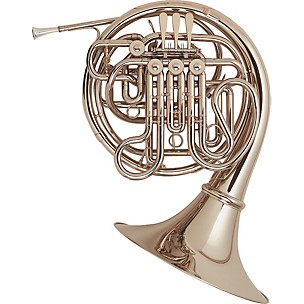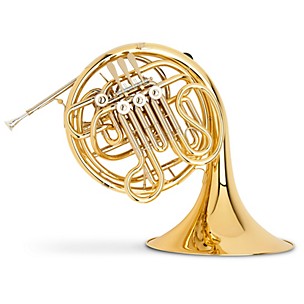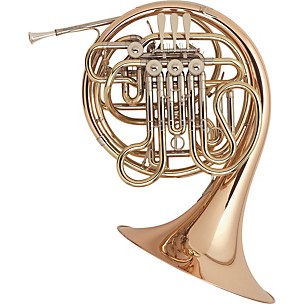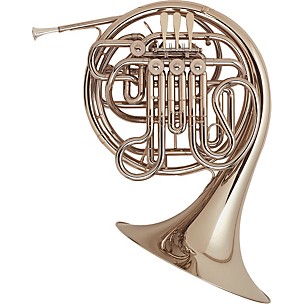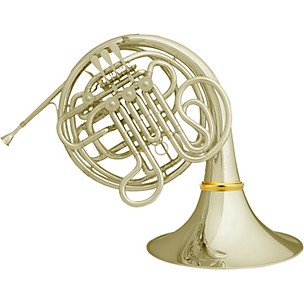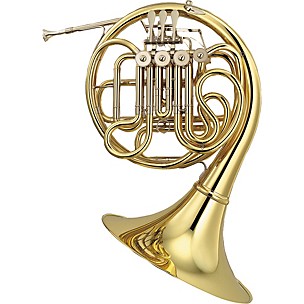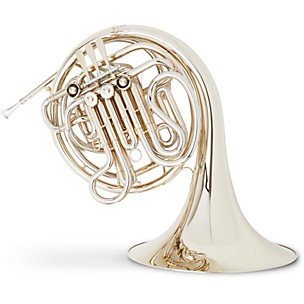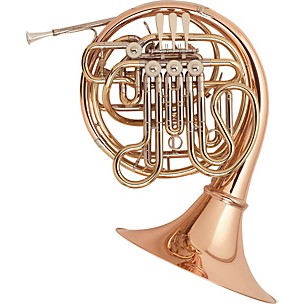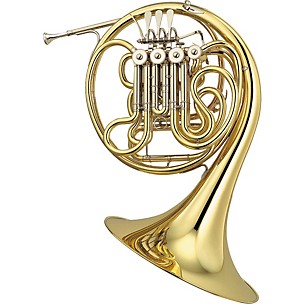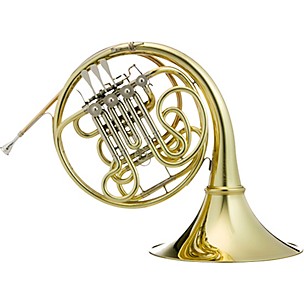French Horns
About French Horns
In conflict to its name the French horn takes its origin in Germany only to migrate to France to take its final form and name. These horns are characterized by the funnel-shaped mouthpiece and unusually long tube piece stretching over 20 feet coiled into a circular shape. This is placed as the third highest sounding instrument in the brass family next to the highest trumpet and cornet. It consist of three parts namely the mouthpiece lever-operated three rotary valves and the twenty foot convoluted tube. These brass horns valves diverges into single tube and double tube horns with one suited for novices and other for higher level practitioners.
In the primary form it was a single horn structure with a single F which proved to be inadequate at the higher pitches and so was later developed into a two horn prototype with the higher pitch Bb. In the single tube horn three valves modifies the air inflow into the tube which is calibrated to the F or and in the case of double horn there is a fourth thumb valve to control the higher tube Bb. The operation consists of pitch control from through lip tension and three valves maneuvering using the left hand. The double horn accommodates an extra thumb operated fourth valve routing the air to F or another Bb tube. The horns hold a prominent position at present in the Chamber music Orchestra especially Beethoven symphonies and jazz music.
